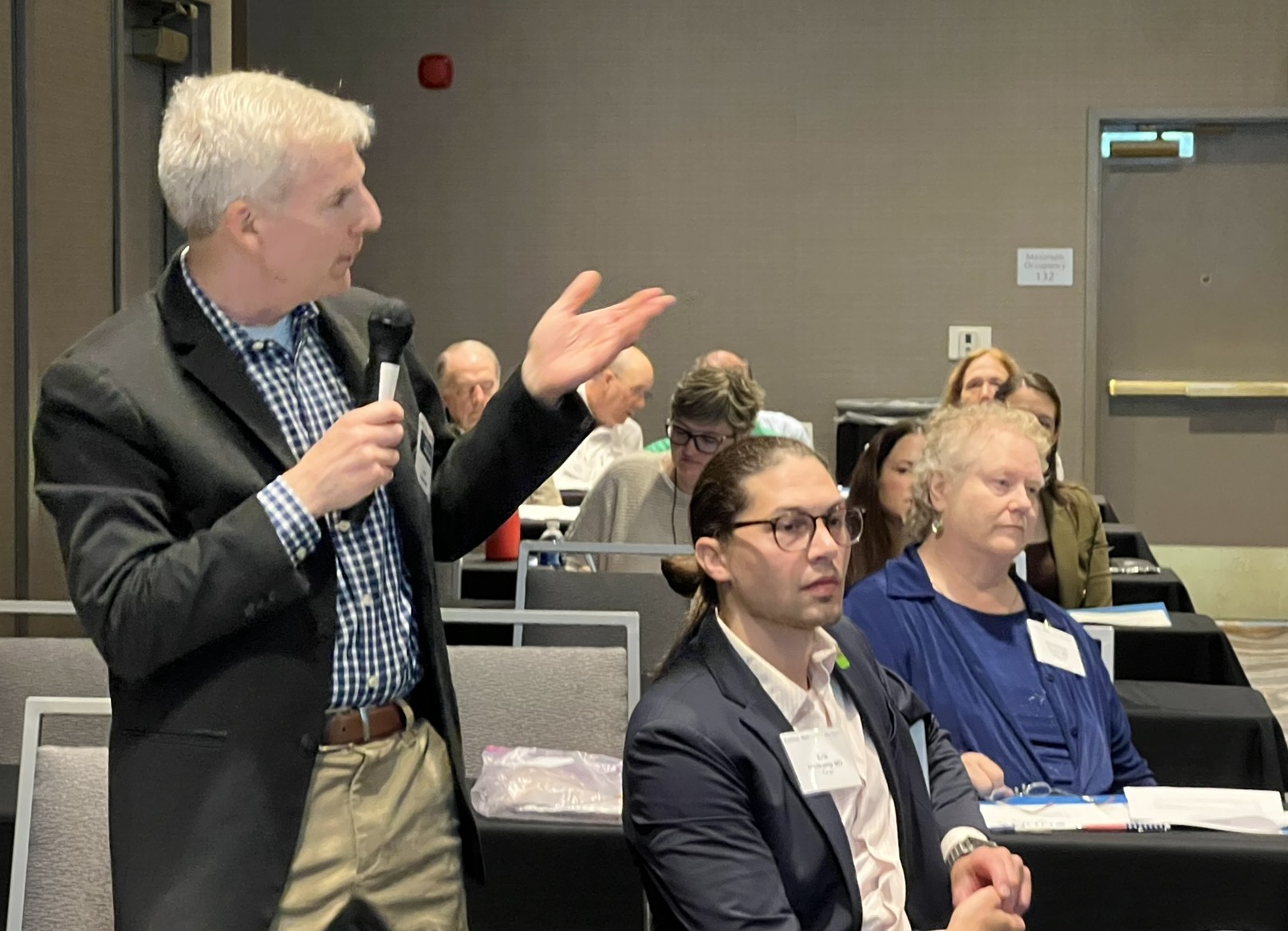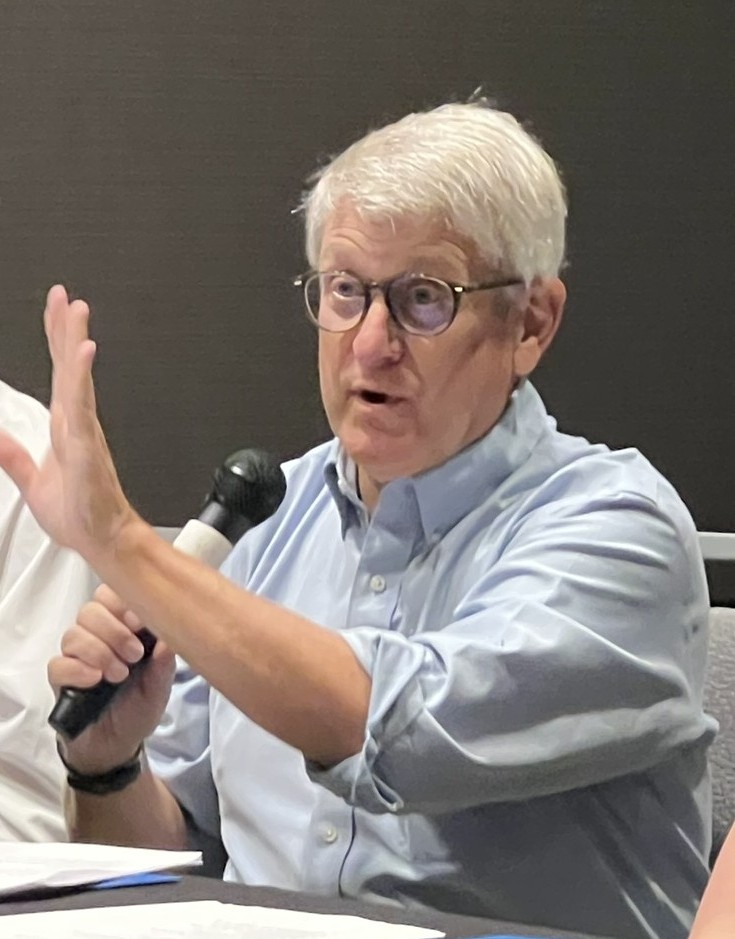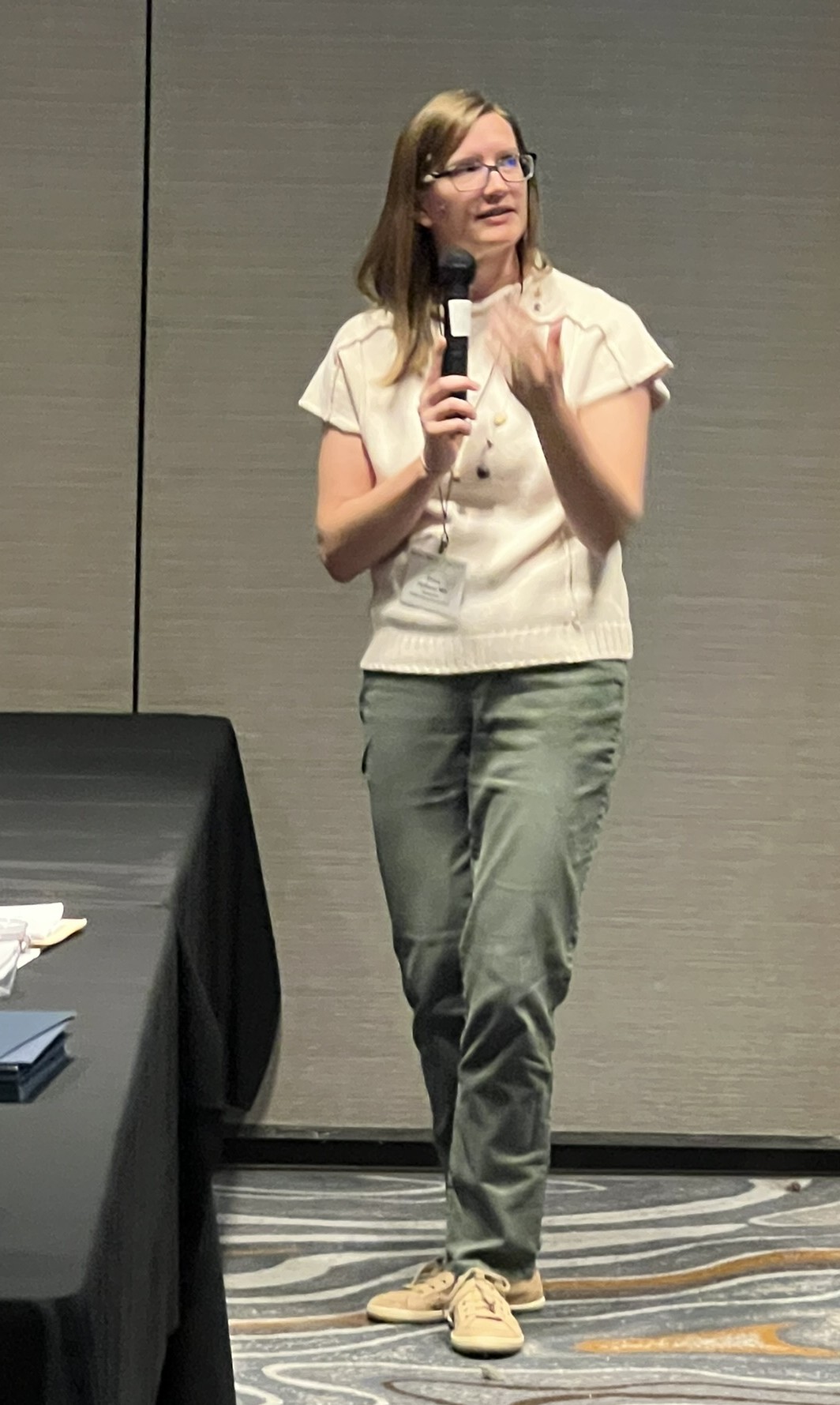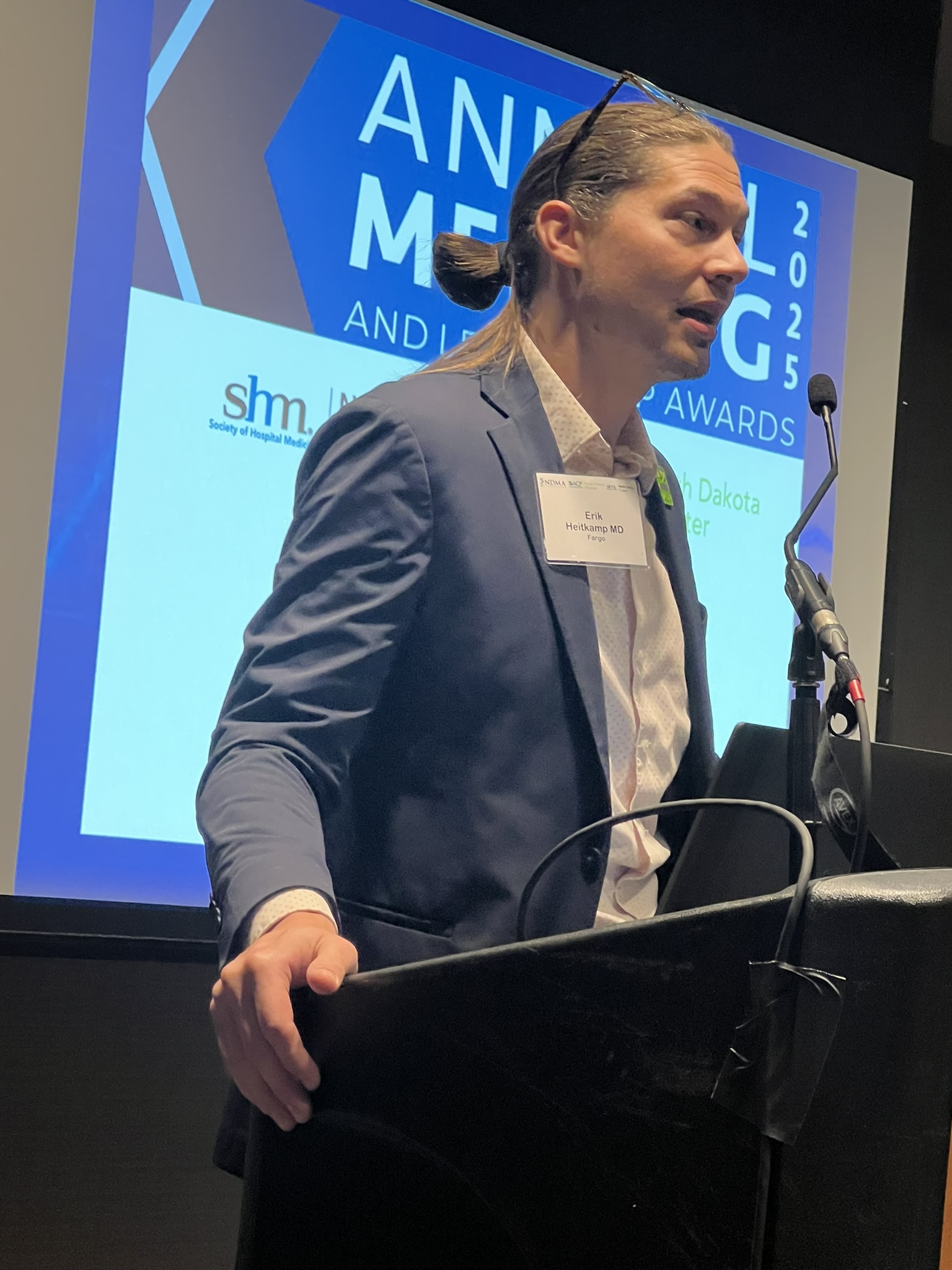The policy forum is strategically designed to increase participation from members on critical policy issues that impact physicians and the care of patients.
|
2025 POLICY FORUM TOPICS |
NDMA's Policy Forum took place during NDMA's 2025 Annual Meeting. The Forum is a big part of what NDMA is all about - protecting the practice of medicine and keeping North Dakotans healthy. Physicians attending the event care deeply about their profession and keeping health a priority for North Dakota.
After the policy discussion, the summaries are brought forward to the NDMA Council, presently slated for the November meeting, where each topic will be carefully vetted. At this point, topics can be either adopted, amended and adopted, rejected, or referred for study. To learn more about policy development and how it works, check out this guide. UPDATE: The NDMA Council met on November 25, 2025 and formally adopted the following policies:
Early Prescription Eye Drop Refills
Access to prescription medication refills before expiration of the intended period.
Many patients depend on prescription eye medications to preserve their vision. Daily use is essential, especially for those with glaucoma and other degenerative eye diseases. Currently, many patients exhaust their prescription eye drops before the intended period ends, as indicated on the label. This issue is especially challenging for elderly patients with unsteady hands, but even careful users struggle to make the medication last. When patients seek an early refill, insurance often denies coverage, leaving them without necessary medication.
Without reasonable refill and insurance policies, continuity of care is disrupted and patients are put at risk. To ensure ongoing access to essential treatment, coverage for limited early refills of prescription eye drops should be required, regardless of standard early refill restrictions. Thirty-one states have already passed Early Eye Drop Refill Laws. In addition, the Centers for Medicare and Medicaid Services (CMS) has issued guidance to Medicare Part D sponsors on the application of early eye drop refills for Medicare beneficiaries.
Proposed Action:
NDMA supports insurance coverage for early refills of eyedrops when medically appropriate. NDMA should file a bill to align with the 31 states already protecting patient access to early refills.
Patient Recording Encounters
NDMA physicians have reported that patients are recording clinic visits and sometimes sharing them on Facebook Live. In North Dakota, only one party must consent to a recording. The AMA offers a model bill to help preserve the integrity of the patient-physician relationship in these situations.
The physician-patient relationship is built on trust and a shared commitment to patient care. Physicians must inform patients and obtain consent before making audio or visual recordings, as outlined in the AMA Code of Medical Ethics. Patients, however, are not required to seek physician consent before recording. Secret recordings by patients can undermine trust. Open communication about recording intentions is essential to maintain this trust. The AMA model bill addresses the rights of both patients and physicians in these situations.
Proposed Action:
NDMA should pursue legislation, based on the AMA model bill, for the 2027 session to prohibit patient recordings without physician consent.
Impact on State Budgets with Proposed Medicaid Reductions
Proposed Medicaid reductions would place significant pressure on state budgets, likely resulting in benefit cuts, reduced provider payments, or increased uninsured rates to compensate for lost federal funds. States with higher poverty rates and vulnerable populations, including those with more residents with disabilities, would face greater challenges due to higher Medicaid needs and limited options for service reductions.
On July 4, 2025, President Trump signed the One Big Beautiful Bill Act (OBBBA) into law. This budget package will have sweeping impacts across Medicaid, the Affordable Care Act (ACA), food nutrition programs, and more. The Congressional Budget Office (CBO) estimates the bill’s health provisions will result in 11.8 million people losing health coverage by 2034. The CBO also estimates that an additional 5.1 million people would lose health coverage due to two policy changes outside the bill, including: 1) the final 2025 CMS marketplace rule implementing eligibility changes, and 2) the expiration of the ACA expanded premium tax credits. In total, CBO estimates 16.9 million people could lose coverage.
Proposed Action:
NDMA will prioritize preserving Medicaid funding and eligibility as an urgent legislative advocacy goal.
Maintaining Vaccine Integrity
Strategic vaccine timing protects individuals and communities by maximizing immunity during the most vulnerable life stages. NDMA affirms the critical role of a research-based immunization schedule in preventing disease outbreaks and safeguarding public health. Since its establishment in 1964, the Advisory Committee on Immunization Practices (ACIP) has provided the evidence-based foundation for national immunization schedules and supported broad insurance coverage for recommended vaccines. However, structural and membership changes in 2025 have raised concerns among medical and public health organizations about the committee’s ability to maintain scientific integrity and independence, potentially impacting public trust and future immunization efforts.
On June 9, 2025, all ACIP members were replaced. The selection process lacked transparency and adequate vetting to confirm the new members’ expertise in vaccine recommendations. On July 31, 2025, liaison organizations were notified by ACIP that they would be excluded from the process of reviewing scientific evidence and informing vaccine recommendations. The groups include the American Medical Association, the American Academy of Family Physicians, the American Academy of Pediatrics, and the American College of Physicians.
Proposed Action:
NDMA supports ACIP recommendations issued before May 1, 2025, and endorses vaccine guidance from national medical specialty societies.
Prior Authorization Advancement
NDMA supports prior authorization reform and successfully advocated for robust regulation during the 2025 legislative session. The policy states that prior authorization is often overused, costly, inefficient, and delays patient care.
At the federal level, efforts are underway to streamline prior authorization and reduce administrative burdens. HHS has announced a final rule to help physicians select appropriate treatments and prevent insurers from denying physician-approved care.
- Effective October 1, the rule will allow providers using certified health IT systems to submit prior authorizations electronically, select drugs based on insurance coverage, and exchange prescription information with pharmacies and insurers.
- Physicians will manage prior authorization requests within their electronic health record systems, standardizing information exchange and enabling faster, more timely patient care.
Proposed Action:
NDMA will support the implementation of the new HHS rule to help North Dakota physicians expedite prior authorizations and tailor patient recommendations to insurance requirements.
Community Health Workers
The Community Health Worker Task Force, established by the ND 2023 Legislature, developed administrative rules for community health workers. While this was a positive first step, the process lacked substantial input from physicians and community health workers. The ND Legislative Administrative Rules Committee reviewed the rules on September 2, 2025, and they took effect on October 1, 2025.
Community Health Worker-supported interventions are especially beneficial in underserved populations, increasing the likelihood of accessing primary care, enhancing mental health, and reducing the possibility of multiple 30-day readmissions from 40% to 15.2%.
There are several issues with the current administrative rules as adopted:
- The rules do not allow billing for any services that require licensure or training beyond what is required for community health worker certification.
- The current training and recertification requirements for community health workers are overly burdensome given their expected responsibilities.
- Training requirements should align with the specific tasks needed in each community. The scope of practice should include activities a provider would reasonably expect a patient or family member to perform after a visit, hospitalization, or treatment.
- Reimbursing community health workers will require funding beyond current Medicaid resources. Partnerships among local public health agencies, universities, and healthcare organizations may help address this need.
NDMA will incorporate new community health worker administrative rules and plans to introduce any necessary amendments during the 2027 legislative session.
 |
||
|
Policy forum participants listen intently to the proposals.
|
Dr. John Bassett provides input into several issues and shares how some policy reform could help healthcare systems and patients.
|
Dr. David Field shares points about how providing care has become more difficult. |
|
Policy Chair Dr. Erica Hofland kept the policy forum discussion engaged.
Dr. Erik Heitkamp shares concerns about patient recording encounters.
|
|




